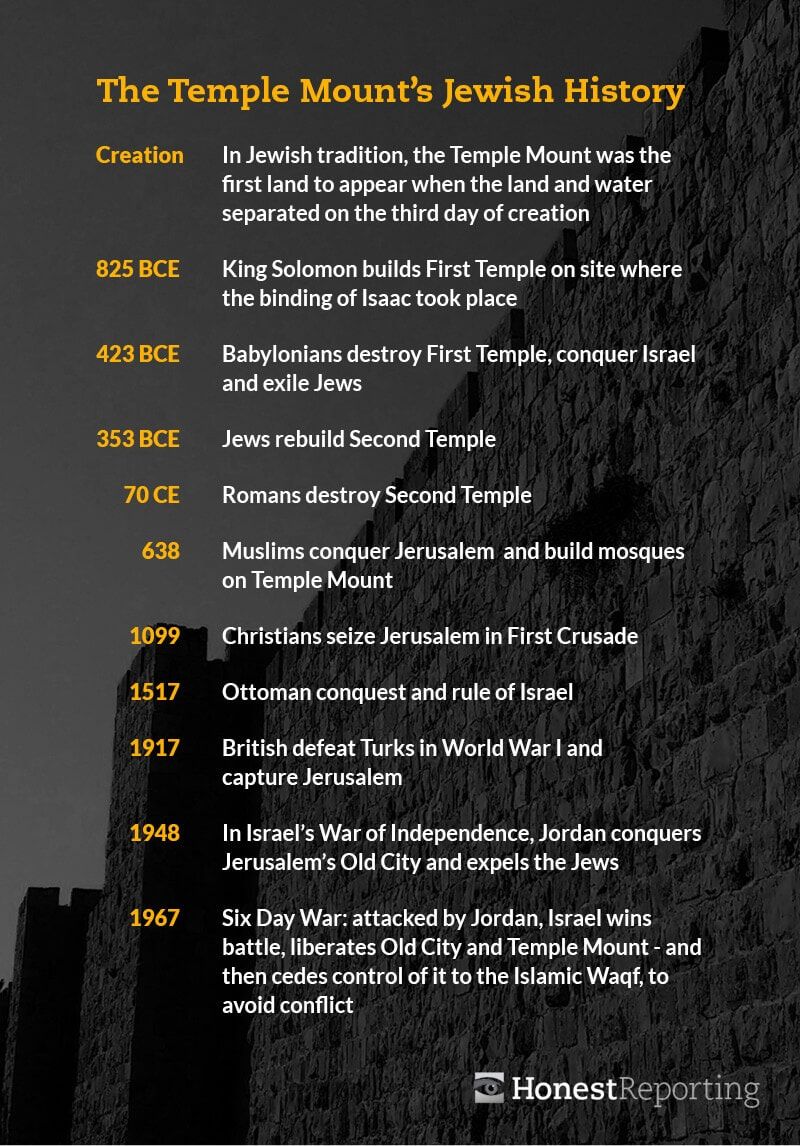Remembering catastrophe.
It’s known as the “saddest day on the Jewish calendar.” Many Jews will fast and some will even observe traditional mourning rituals. This is because on Saturday night and Sunday Jews around the world will mark Tisha B’Av: a holiday that commemorates a number of tragedies throughout Jewish history.
One of those many tragedies strikes me as especially meaningful today: the destruction of the “Second Temple,” and of the entire Jewish nation-state, some 2,000 years ago. This destruction continues to impact us today: in fact it gives meaning to the entire concept of modern Zionism.
Join the fight for Israel’s fair coverage in the news
Think about what this means.
The simple existence of the holiday of Tisha B’Av implies something extraordinary:
The Jewish people were living in the Land of Israel long before Christianity even existed, before Islam, before the current nations of Europe came to be, and not only before America was formed but even before the known Native American tribes had formed.
Jews are indigenous people. One of the oldest we know.
In a saga common to many indigenous peoples, Jews were massacred, exiled, enslaved and oppressed. Yet the Jewish people survived and endured, until a startling turn of events, a “mere” 1,878 years later, when Jews became one of the rare indigenous peoples to actually return to their native land, and re-build an independent nation.
It is a story called “Zionism.”

So…what’s Palestine?
After the Romans conquered the Land of Israel in 70 CE, they felt the need to impress upon the the conquered Jewish people that they had been…well, conquered.
To this end, the Romans re-named the Land of Israel (now merely a small region within the Roman Empire) after the Jewish people’s ancient nemesis: the Philistines. The name “Philistine” is derived from the Hebrew word for “migrant” also translated as “invader.” In the accent of ancient Latin, Philistine came to be pronounced, “Palestina.”
Think about the enormity of this change: it would be like the United States conquering India, turning all its citizens into slaves, and changing its name to “South-Pakistan,” just to be extra hurtful.
The Land of Israel (under its new name) was conquered and re-conquered numerous times, including: by the ancient Greeks, by an Arab caliphate, by European Crusaders, by the Ottoman Empire, and when the Ottoman Empire fell as a result of World War I, the League of Nations entrusted management of the region to the British Empire.
Finally, in 1948, a year that was 1,878 years after the destruction of the Second Temple, the Land of Israel saw the re-establishment of the Jewish state.
Two sides of the same coin.
Tisha B’Av is a story of perseverance in the face of destruction and terrible sadness. Zionism is the inspiring story of an ancient, indigenous people returning to their native land. These stories are two sides of the same coin: ancient dispersal and modern return, tragedy and renewal, longing and home. Together, Tisha B’Av and Zionism tell a tale of life itself that applies to every human, and to all of humanity.


